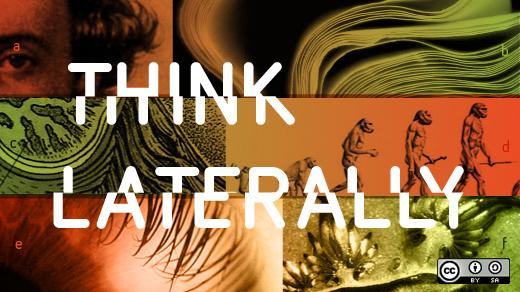mirror of
https://github.com/LCTT/TranslateProject.git
synced 2025-01-22 23:00:57 +08:00
50 lines
4.4 KiB
Markdown
50 lines
4.4 KiB
Markdown
|
|
What Game of Thrones can teach us about open innovation
|
||
|
|
======
|
||
|
|
|
||
|
|

|
||
|
|
|
||
|
|
You might think the only synergy one can find in Game of Thrones is that between Jaime Lannister and his sister, Cersei. Characters in the show's rotating cast don't see many long term relationships, as they're killed off, betrayed, and otherwise trading loyalty in an effort to stay alive. Even the Stark children, siblings suffering from the deaths of their parents, don't really get along most of the time.
|
||
|
|
|
||
|
|
But there's something about the chaotic free-for-all of constantly shifting loyalties in Game of Thrones that lends itself to a thought exercise: How can we always be aligning disparate positions in order to innovate?
|
||
|
|
|
||
|
|
Here are three ways Game of Thrones illustrates behaviors that lead to innovation.
|
||
|
|
|
||
|
|
### Join forces
|
||
|
|
|
||
|
|
Aria Stark has no loyalties. Through the death of her parents and separation from her siblings, young Aria demonstrates courage in pursuing an education with the faceless man. And she's rewarded for her courage with the development of seemingly supernatural abilities.
|
||
|
|
|
||
|
|
Aria's hate for the people on her list has her innovating left and right in an attempt to get closer to them. As the audience, we're on Aria's side; despite her violent and deadly methods, we identify with her attempts to overcome hardship. Her determination makes us loyal fans, and in an open organization, courage and determination like hers would be rewarded with some well-deserved influence.
|
||
|
|
|
||
|
|
Being loyal and helpful to driven people like Aria will help you and (by extension) your organization innovate. Passion is infectious.
|
||
|
|
|
||
|
|
### Be nimble
|
||
|
|
|
||
|
|
The Lannisters represent a traditional management structure that forcibly resists innovation. Their resistance is usually the result of their fear of change.
|
||
|
|
|
||
|
|
Without a doubt, change is scary—especially to people who wield power in an organization. Losing status causes us fear, because in our evolutionary and social history, losing status could mean that we would be unable to survive. But look to Tyrion as an example of how to thrive once status is lost.
|
||
|
|
|
||
|
|
There's something about the chaotic free-for-all of constantly shifting loyalties in Game of Thrones that lends itself to a thought exercise: How can we always be aligning disparate positions in order to innovate?
|
||
|
|
|
||
|
|
Tyrion is cast out (demoted) by his family (the senior executive team). Instead of lamenting his loss of power, he seeks out a community (by the side of Daenerys) that values (and can utilize) his unique skills, connections, and influences. His resilience in the face of being cast out of Casterly Rock is the perfect metaphor for how innovation occurs: It's iterative and never straightforward. It requires resilience. A more open source way to say this would be: "fail forward," or "release early, release often."
|
||
|
|
|
||
|
|
### Score resources
|
||
|
|
|
||
|
|
Daenerys Targaryen embodies all the necessary traits for successful innovation. She can be seen as a model for the kind of employee that thrives in an open organization. What the Mother of Dragons needs, the Mother of Dragons gets, and she doesn't compromise her ideals to do it.
|
||
|
|
|
||
|
|
Whether freeing slaves (and then asking for their help) or forming alliances to acquire transport vehicles she's never seen before, Daenerys is resourceful. In an open organization, a staff member needs to have the wherewithal to get things done. Colleagues (even the entire organization) may not always share your priorities, but innovation happens when people take risks. Becoming a savvy negotiator like Khaleesi, and developing a willingness to trade a lot for a little (she's been known to do favors for the mere promise of loyalty), you can get things done, fail forward, and innovate.
|
||
|
|
|
||
|
|
Courage, resilience, and resourcefulness are necessary traits for innovating in an open organization. What else can Game of Thrones teach us about working—and succeeding—openly?
|
||
|
|
|
||
|
|
--------------------------------------------------------------------------------
|
||
|
|
|
||
|
|
via: https://opensource.com/open-organization/18/7/open-innovation-lessons-game-of-thrones
|
||
|
|
|
||
|
|
作者:[Laura Hilliger][a]
|
||
|
|
选题:[lujun9972](https://github.com/lujun9972)
|
||
|
|
译者:[译者ID](https://github.com/译者ID)
|
||
|
|
校对:[校对者ID](https://github.com/校对者ID)
|
||
|
|
|
||
|
|
本文由 [LCTT](https://github.com/LCTT/TranslateProject) 原创编译,[Linux中国](https://linux.cn/) 荣誉推出
|
||
|
|
|
||
|
|
[a]:https://opensource.com/users/laurahilliger
|